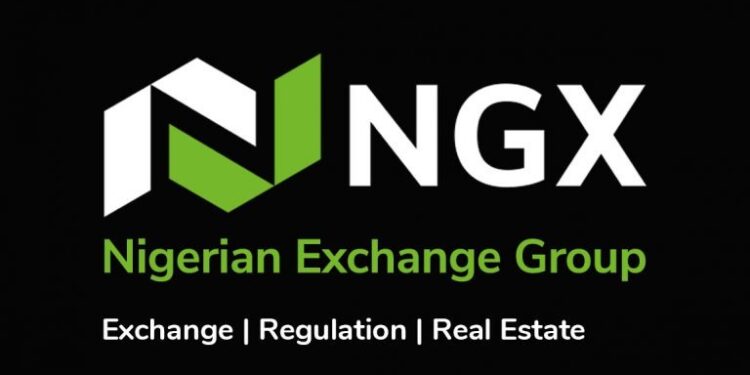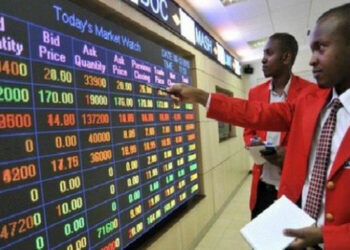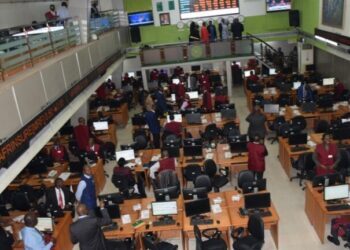The equity market began the week on a bearish note, reversing prior session gains with a loss of N62 billion.
The decline was primarily driven by losses in Oando Plc, United Bank for Africa (UBA), Access Corporation, United Capital and Transnational Corporation.
Consequently, the market capitalisation, which opened at N59.534 trillion, dropped by N62 billion or 0.11 per cent to close at N59.472 trillion.
Similarly, the All-Share Index fell by 0.11 per cent or 103.23 points to close at 98,107.52, compared to 98,210.75 recorded on Friday.
The Year-To-Date (YTD) return to 31.21 per cent.
Market breadth closed negative with 36 losers against 19 gainers.
Golden Guinea Breweries and NGX Group led the gainers table by 10 per cent each to close at N5.94 and N27.50 per share, respectively.
Tantalizers also followed by 9.92 per cent to close at N1.33, Africa Prudential added 9.72 per cent to close at N11.85 per share.
Wapic Plc added 9.35 per cent to close at N1.17 per share.
Secure Electronic Technology Plc led the losers table by 10 per cent to close at 63k per share.
Guinea Insurance trailed by 8.93 per cent to close at 51k, Deap Capital declined by 8.40 to close at N1.09.
Also, Daar Communications shed 7.02 per cent to close at 53k, while RT Briscoe went down by 6.12 per cent to close at N2.30 per share.
Analysis of the market activities showed trade turnover settled lower relative to the previous session, with the value of transactions down by 26.33 per cent.
A total of 436.04 million shares valued at N12.86 billion were exchanged in 9,489 deals, compared with 1.04 billion shares valued at N17.46 billion were exchanged in 7,220 deals.
Meanwhile, FCMB Group led the activity chart in volume of 61.65 million shares, while Aradel led in value of deals worth N3.53 billion.
Ahead of the week, analysts at Cowry Asset Management Ltd., predicted that a bullish momentum is expected to persist.
This, they added, would be driven by continued investors’ interest in fundamentally sound stocks.
The analysts said from a technical perspective, the NGX appears to be in a markup phase amidst ongoing recovery and market volatility.
They added that the candlestick patterns and momentum indicators suggest a balanced interplay of market strength and weakness.
“We continue to advise investors to take position in fundamentally sound stocks,” they said.











